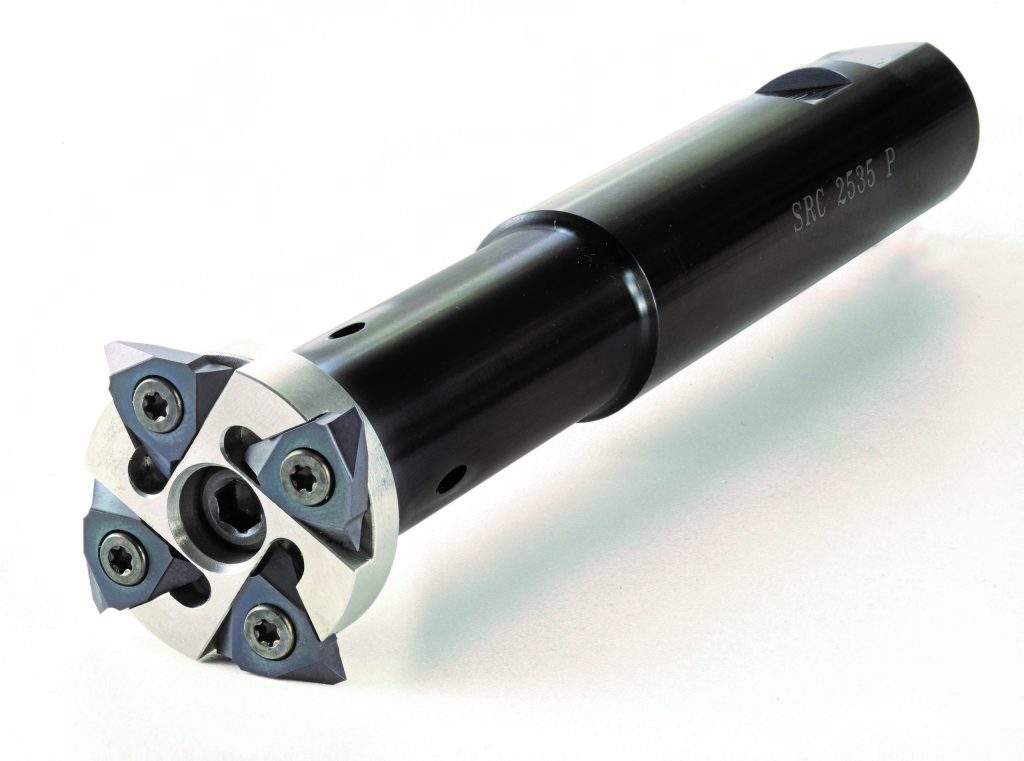CMT Milling Head
CMT Milling Head
Engineered for use with the standard CMT toolholder (S35 type), Carmex's new high-performance milling head uses multiple indexable inserts for threading, grooving, chamfering and facing. With a cutting diameter of 41mm, a thread pitch of up to 4mm and a groove depth to 9mm, CMT accepts four triple-edged round profile inserts for high precision and enhanced performance.

Engineered for use with the standard CMT toolholder (S35 type), Carmex's new high-performance milling head uses multiple indexable inserts for threading, grooving, chamfering and facing. With a cutting diameter of 41mm, a thread pitch of up to 4mm and a groove depth to 9mm, CMT accepts four triple-edged round profile inserts for high precision and enhanced performance.
According to Jim White, national sales manager for Carmex USA, "Multiple cutting edges on the CMT milling head generate high surface finish, as well as improved productivity in virtually all operations. The combination of versatility, performance and precision result in improved economy for our customers."





